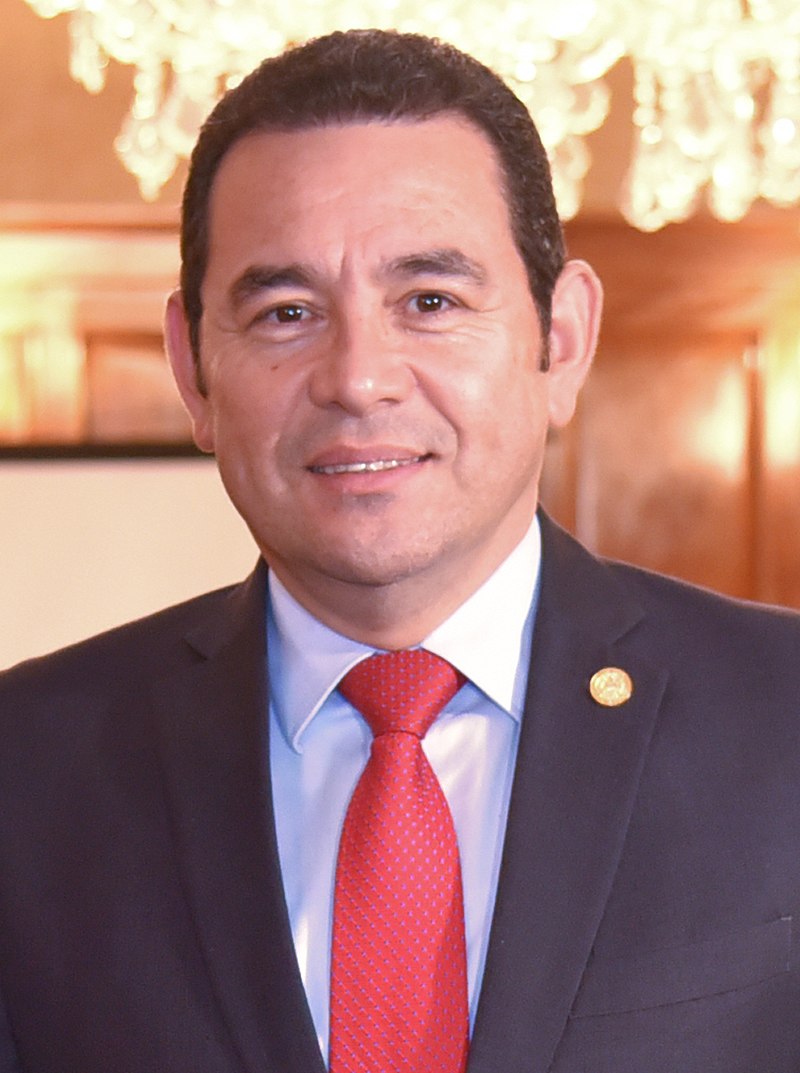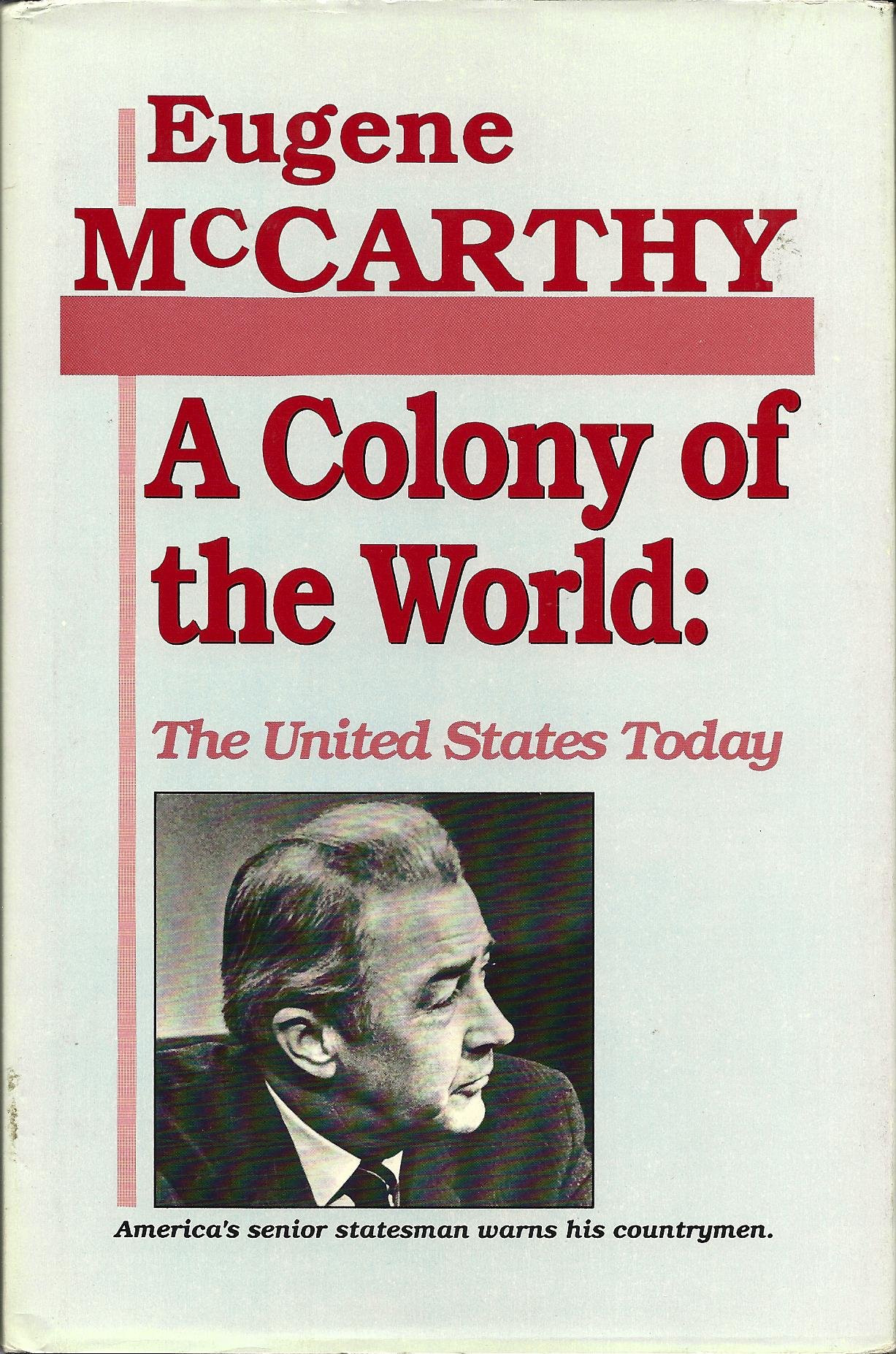Presidential candidates held a debate in Los Angeles recently, on May 19th. I do not refer to the growing mob of Democrats aiming at The Donald. The debate in Los Angeles, instead, was among Guatemalan presidential candidates. You read that right. Candidates running for president in Guatemala debated on U.S. soil. No reaction from our Political Class, of course. It’s almost as if they actually want a stealth merger of the hemisphere.
Should Americans be aware of what was Said In Spanish? I think so, even if the Main Stream Media does not.
We constantly hear about Russian meddling in the 2016 election. But the MSM doesn’t want to know about flagrant Mexican meddling—much less about meddling by Guatemala, a country to the east and south of Mexico, a major source of migrants in the ongoing assault on our southwest border.
From the beginning of fiscal 2019 in October through April, Guatemalans were at least 165,799 of the 531,741 immivading illegal aliens [Southwest Border Family Unit Subject, Unaccompanied Alien Children, and Single Adult Apprehensions Fiscal Year 2019 — By Month and Southwest Border Migration FY 2019, CBP.gov]. Which is why Guatemalan presidential candidates are debating on U.S. soil: to influence Guatemalans here to either vote in the Guatemalan election, or for them to influence relatives and friends back in Guatemala.
![https://upload.wikimedia.org/wikipedia/commons/thumb/6/6c/Reuni%C3%B3n_OPIC_%28cropped%29.jpg/800px-Reuni%C3%B3n_OPIC_%28cropped%29.jpg]() Guatemala’s president is Jimmy Morales, a former comedian. (Pictured to the right). The country’s constitution limits him to one four-year term. So this election chooses a successor.
Guatemala’s president is Jimmy Morales, a former comedian. (Pictured to the right). The country’s constitution limits him to one four-year term. So this election chooses a successor.
The election is set for June 16. If no candidate wins a majority, the runoff is August 11. Which is quite likely given that 20 candidates are running—not quite as many as the growing group of Democratic presidential candidates in the U.S., but still a lot.
![https://upload.wikimedia.org/wikipedia/commons/8/8d/Edwin_Escobar_con_F%C3%A9lix_Hern%C3%A1ndez_%28cropped%29.jpg]() The top six, according to the polls: Roberto Arzu , Edwin Escobar, Sandra Torres, Edmond Mulet, Julio Hector Estrada, and Alejandro Giammattei. Note that, as usual in Latin American politics, they appear whiter than your average Guatemalan. (Guatemala is about 18% white—the balance roughly equally divided between mestizos and Amerindians). Pictured right: Edwin Escobar.
The top six, according to the polls: Roberto Arzu , Edwin Escobar, Sandra Torres, Edmond Mulet, Julio Hector Estrada, and Alejandro Giammattei. Note that, as usual in Latin American politics, they appear whiter than your average Guatemalan. (Guatemala is about 18% white—the balance roughly equally divided between mestizos and Amerindians). Pictured right: Edwin Escobar.
None of these six front-runners were in the LA debate, which instead included five others: Fredy Cabrera, Aníbal García, José Luis Chea Urruela, Luis Velásquez Quiroa, and vice-presidential candidate Erico Can.
The sponsors were La Alianza Guatemaltecos Unidos (United Guatemalan Alliance) and Churches In Action, founded in Los Angeles by Bishop Juan Carlos Mendes, an Assemblies of God pastor from Guatemala.
Now, to what the candidates said: “Five principal topics were of interest to the Guatemalans who questioned the politicians about their proposals on issues such as education, health, security, corruption and migrant issues,” the Guatemalan newspaper Prensa Libre reported. [Candidatos guatemaltecos presentan propuestas en acalorado debate presidencial en EE.UU. (Guatemalan Candidates Present Proposals in a Heated Presidential Debate in the United States), by Raul Juarez, May 19, 2019]
(“Migrant issues”? Of course. That’s how so many Guatemalans got into the United States in the first place).
About migration, the politicians focused on the creation of jobs and investment to keep Guatemalans from leaving their country in search of better opportunities.
(That’s typical boilerplate. Of course they said that. But they certainly don’t mind if Guatemalans pack up, leave home, and head for the United States).
They guaranteed to make profound changes in Guatemalan politics and that they would provide support to the fellow Guatemalans who have problems in the United States.
(A Spanish term used in the debate was acompañamiento - “Accompaniment,” presumably meaning that the Guatemalan government will help Guatemalans in the United States. It sounds like the meddling that Mexican diplomats have carried out here for years. Guatemalan diplomats can play that game also).
Candidate Jose Luis Chea Urreala, of the Productivity and Work party, said “Guatemala is one the most unjust lands and the biggest injustice is for the 2.5 million Guatemalans who have had to migrate to the United States." The candidate offered a three-part plan to Guatemalans who felt forced to leave their country:
To this community that we obliged to leave the country, we offer three fundamental things:
- To improve the quality of services;
- To monitor the process of the passport and DPI. [DPI refers to the Documento Personal de Identificación, a Guatemalan identity document, which in the United States can be used in a similar fashion as the Mexican matricula consular.]
- The Political Will to negotiate the possibility of improving the treatment of the emigrants here and those who return to Guatemala.
(“Improving the treatment of the emigrants here” sounds like Mexican consular activities on behalf of Mexicans in the United States).
Candidate Luis Velásquez Quiroa of the Unidos (United) party promised to “create a million and a half new jobs in Guatemala. Also, we will give 100 percent accompaniment to the emigrant. For the people who speak in their mother tongue we will give accompaniment.”
(“Mother tongue” presumably refers to either Spanish or one of the 23 Indian languages (21 Mayan, 2 non-Mayan) spoken in Guatemala. But couldn’t they give that support back in Guatemala?)
Fredy Cabrera of the Todos (All,Everybody) party also spoke of Guatemalans’ having more opportunities where they are from—even pledging to “prevent the first stage of emigration” by spending more money on local municipalities, because “if the municipalities are strengthened the persons are not going to emigrate.”
Cabrera is talking about doing things to keep Guatemalans in Guatemala. That’s a good idea. But as long as mass migration is an option, it’s hard to believe the Guatemalan elite will do anything serious to discourage it.
Anibal Garcia of the Libre (Free) party also pledged to “make fundamental economic changes for Guatemala and to offer attention to the fellow Guatemalans.” Garcia also talked about consulates and apparently vowed to do meddle in our internal affairs, just like the Mexicans:
We are going to give good attention to the consulates, to give accompaniment to the migrants, to appoint good consuls, to appoint good ambassadors, to appoint a foreign relations minister who will dignify the post.
(Guatemala already has 19 consulates on U.S. soil, by the way, and 11 in Mexico, and one apiece in Canada, Belize and Honduras).
Erico Alejandro Can, a vice-presidential candidate for the Victoria (Victory) party, also spoke about the consulates, promising to select consuls from among the Guatemalan population already residing in the United States. And, Can said, “we have made a commitment to fight against corruption.”
I have been in the United States for a month seeking suitable migrants, speaking with them so that they can direct our consulates, our embassies.
Prensa Libre also noted “tense moments between the candidates Fredy Cabrera and Anibal Garcia. Garcia accused Fredy of being involved with drug traffickers:
Fredy, you are an adviser of drug traffickers. … You are a personal friend of [President] Jimmy Morales, don’t deny it.
In response, Cabrera “asked Garcia to prove that he had defended drug traffickers” and said Garcia had been caught driving drunk.
![]() Moderators asked the candidates to calm down, and—get this—“to focus on giving proposals to the Guatemalans who vote in the exterior.”
Moderators asked the candidates to calm down, and—get this—“to focus on giving proposals to the Guatemalans who vote in the exterior.”
Again, influencing those Guatemalans “who vote in the exterior” are why the candidates were in our country.
This 90-minute debate was just the first. Another is planned for another U.S. city. Maybe the front-runners will show up next time.
After all, in the words of former Democratic Presidential candidate and immigration patriot Gene McCarthy, the U.S. is ”a colony of the world” with no interests of its own.
Being a venue for the presidential debates and campaigns of foreigners makes perfect sense.
And who’s complaining anyway?
American citizen Allan Wall (email him) moved back to the U.S.A. in 2008 after many years residing in Mexico. Allan's wife is Mexican, and their two sons are bilingual. In 2005, Allan served a tour of duty in Iraq with the Texas Army National Guard. His VDARE.COM articles are archived here; his Mexidata.info articles are archived here; his News With Views columns are archived here; and his website is here.




 Guatemala’s president is
Guatemala’s president is  The top six, according to the polls:
The top six, according to the polls:  Moderators asked the candidates to calm down, and—get this—“to focus on giving proposals to the Guatemalans who vote in the exterior.”
Moderators asked the candidates to calm down, and—get this—“to focus on giving proposals to the Guatemalans who vote in the exterior.”








